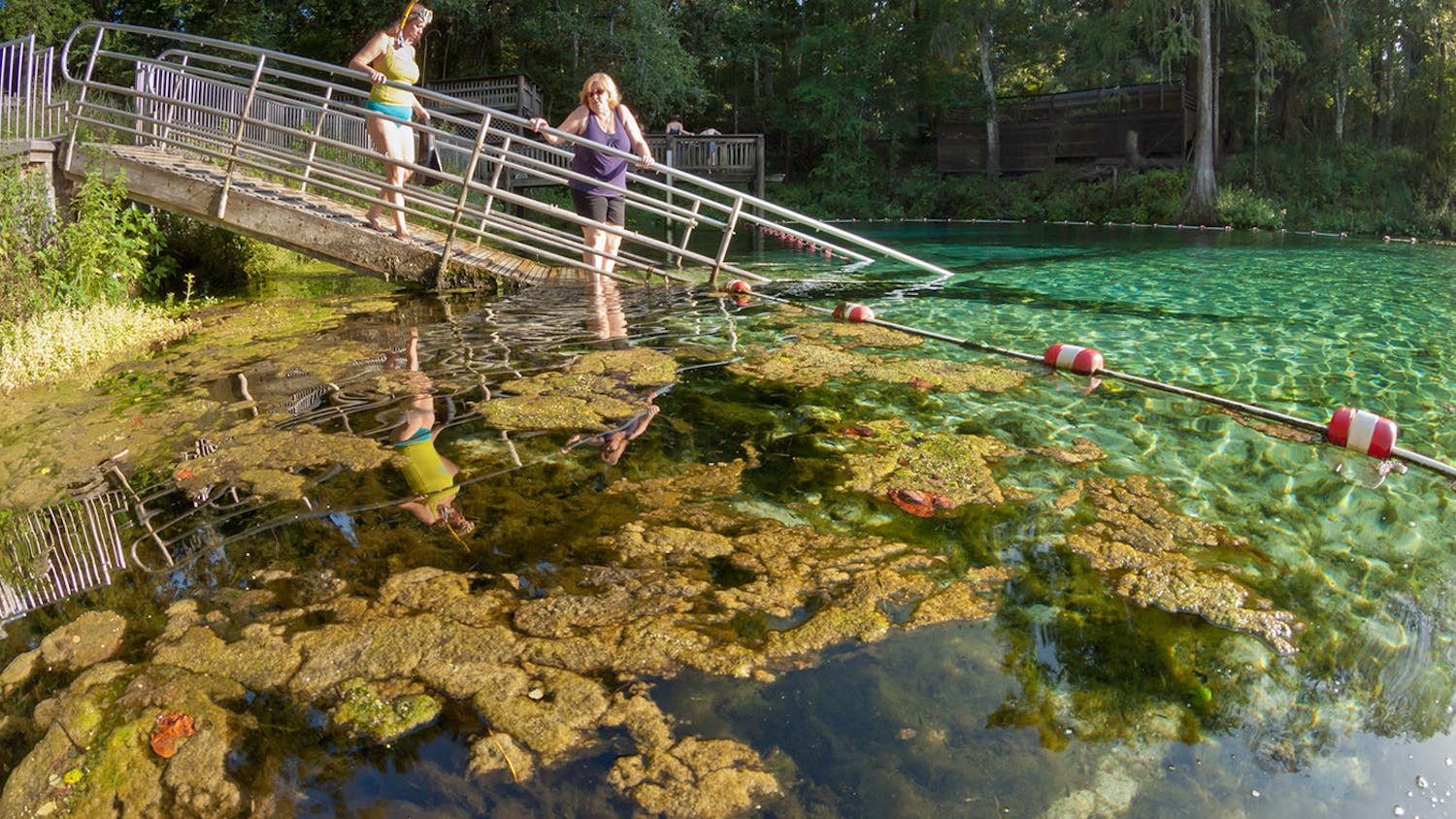Florida’s springs are a part of what make this state so unique. For many students in the Gainesville area, names like Ichetucknee and Santa Fe river are associated with circular tubes and moseying down one of Florida’s natural gifts.
But while many students will recognize the names of these springs, it is rare to know of the intense politics surrounding them.
Over the past several years the health of Wakulla Springs, Santa Fe River and Ginnie Springs have been compromised. The springs are something that should be protected, not exploited.
But when there is a potential for profit many moral principles are left forgotten.
Most recently, the Wakulla Springs near Tallahassee made front page news this summer, not because it hosts one of the world’s largest and deepest freshwater springs, but because Wakulla County Commissioners arranged plans to build a gas station on top of one of the spring’s underwater caves.
You don’t need to have a geology degree to understand why this is bad. But here’s a brief rundown: Florida springs are made of mostly limestone — which has lots of holes and is very easy to permeate. These springs are connected to the Floridan Aquifer — where we get our fresh water from. Thus, if this gas station is built and it leaks, it will directly poison the natural waters below it. There is not a lot of community support for this plan either as this summer there were many outraged protesters who attended the Wakulla County Commission meeting.
Ginnie Springs is a little closer to the Gator Nation, as it connects directly into the Santa Fe River. However, this beloved spring is in the midst of a legal battle. Organizations like the Florida Springs Council are pursuing legal action against the SRWMD ( Suwannee River Water Management District ) Governing Board as it believes it has violated its own rules and the Florida Statutes in pursuing water use permits.
Specifically, it argues the board must pass a three-prong test that evaluates whether the water use permit would be “consistent with the public interest”. Water use permits for Ginnie Springs are approved by the SRWMD Governing Board. Permits that are only $115 for complete access to pump from the springs. Our springs are worth more than this.
Why are protections for our springs worth fighting for? To answer this question all that is needed is to look back at the history of Florida springs that have gone unprotected. For example, Kissengen Spring, found next to Peace River, dried up because of misuse and a lack of environmental protections. This circumstance was not unique, as White Springs, and Worthington Springs have also disappeared.
By conceding control of our natural resources without the approval of the community, the environment can and will be taken advantage of. Even with approved permits, these precious resources are being depleted. Permits — like the one previously mentioned in the case of Ginnie Springs — will create reduction in water flow from the springs to the Santa Fe River.
The Santa Fe River does not meet minimum flow and level standards currently.
These are clear signs that indicate more action is needed. If we are to preserve the beautiful waters of the springs that not only provide recreation, but our own drinking water, we have to pay attention to the actions of those in control, like county commissioners or large companies. Actors who are planning to engage in a fight that can only have one winner.
Cayman Forbes is a UF political science and international studies senior.






